Filter by
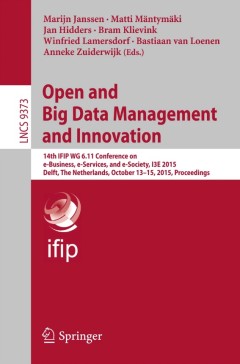
Open and Big Data Management and Innovation:14th IFIP WG 6.11 Conference on e…
This book constitutes the refereed conference proceedings of the 14th IFIP WG 6.11 Conference on e-Business, e-Services and e-Society, I3E 2015, held in Delft, The Netherlands, in October 2015. The 40 revised full papers presented together with 1 keynote panel were carefully reviewed and selected from 65 submissions. They are organized in the following topical sections: adoption; big and open …
- Edition
- 1
- ISBN/ISSN
- 978-3-319-25012-0
- Collation
- XIV, 514
- Series Title
- Theoretical Computer Science and General Issues
- Call Number
- -
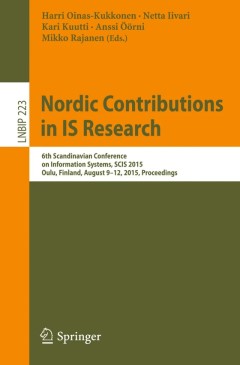
Nordic Contributions in IS Research
This book contains the refereed proceedings of the 6th Scandinavian Conference on Information Systems, SCIS 2015, held in Oulu, Finland, in August 2015. The theme for this book as well as for the conference is “Design for, with, and by Users.” This theme has characterized information systems research already for decades, and it is still a vibrant topic, especially so within the Scandinavian…
- Edition
- 1
- ISBN/ISSN
- 978-3-319-21782-6
- Collation
- XVI, 253
- Series Title
- Lecture Notes in Business Information Processing
- Call Number
- -
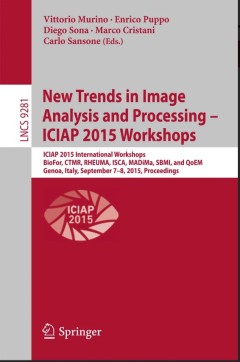
New Trends in Image Analysis and Processing -- ICIAP 2015 Workshops
This book constitutes the refereed proceedings of seven workshops held at the 18th International Conference on Image Analysis and Processing, ICIAP 2015, in Genoa, Italy, in September 2015: International Workshop on Recent Advances in Digital Security: Biometrics and Forensics, BioFor 2015; International Workshop on Color in Texture and Material Recognition, CTMR 2015; International Workshop on…
- Edition
- 1
- ISBN/ISSN
- 0302-9743
- Collation
- XXVII, 599
- Series Title
- Lecture Notes in Computer Science
- Call Number
- -

e-Infrastructure and e-Services for Developing Countries 6th International C…
This book constitutes the thoroughly refereed proceedings of the 6th International Conference on e-Infrastructure and e-Services for Developing Countries, AFRICOMM 2014, held in Kampala, Uganda, November 24-25, 2014. The 31 revised full papers were carefully selected from 57 submissions and cover topics such as communication infrastructure, health, IoT, cloud computing and TVWS, ICT4D applicati…
- Edition
- -
- ISBN/ISSN
- 978-3-319-16886-9
- Collation
- -
- Series Title
- -
- Call Number
- -
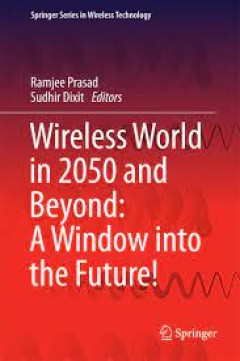
Wireless World in 2050 and Beyond: A Window into the Future
This book gathers visionary ideas from leading academics and scientists to predict the future of wireless communication and enabling technologies in 2050 and beyond. The content combines a wealth of illustrations, tables, business models, and novel approaches to the evolution of wireless communication. The book also provides glimpses into the future of emerging technologies, end-to-end syste…
- Edition
- -
- ISBN/ISSN
- 978-3-319-42141-4
- Collation
- XXII, 168
- Series Title
- -
- Call Number
- -
Intellectual Property : Law & the Information Society—Cases and Materials
This book is an introduction to intellectual property law, the set of private legal rights that allows individuals and corporations to control intangible creations and marks—from logos to novels to drug formulae—and the exceptions and limitations that define those rights. It focuses on the three graphmain forms of US federal intellectual property—trademark, copyright and patent—but many…
- Edition
- -
- ISBN/ISSN
- -
- Collation
- -
- Series Title
- -
- Call Number
- 340 BOY i

Plants, Society, and the Environment
Affordable Learning Georgia Grants Collections are intended to provide faculty with the frameworks to quickly implement or revise the same materials as a Textbook Transformation Grants team, along with the aims and lessons learned from project teams during the implementation process.
- Edition
- -
- ISBN/ISSN
- -
- Collation
- -
- Series Title
- -
- Call Number
- 580 HAR p
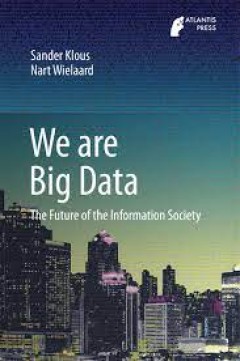
We are Big Data The Future of the Information Society
This book demonstrates the inevitability of a continuously growing role of data in our society and it stresses that this role does not need to be threatening: to the contrary, collection and analysis of data can help us prevent traffic jams, suppress epidemics, or produce tailor made medicine. The authors sketch the contours of a new information society, in which everything will be measured fro…
- Edition
- -
- ISBN/ISSN
- 978-94-6239-183-3
- Collation
- XIX, 199
- Series Title
- -
- Call Number
- -
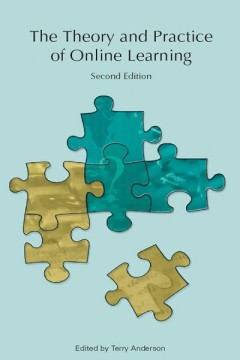
The Theory and Practice of Online Learning
In this important collection of essays by practitioners and scholars that has been downloaded nearly half a million times is an overview of some of the most pressing issues in online education. By addressing transformations arising from educational technology advances and the new business conditions and modes of delivery of education, the contributors to The Theory and Practice of Online Learni…
- Edition
- -
- ISBN/ISSN
- 9781897425084.01
- Collation
- -
- Series Title
- -
- Call Number
- 484 pages
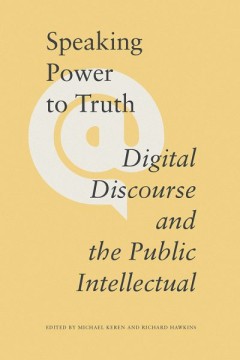
Speaking Power to Truth Digital Discourse and the Public Intellectual
Casting doubt on the assertion that online discourse, with its proliferation of voices, will somehow yield collective wisdom, Speaking Power to Truth raises concerns that this wealth of digitally enabled commentary is, in fact, too often bereft of the hallmarks of intellectual discourse: an epistemological framework and the provision of evidence to substantiate claims. Instead, the pursuit of t…
- Edition
- -
- ISBN/ISSN
- 9781771990332.01
- Collation
- -
- Series Title
- -
- Call Number
- 216 pages
 Computer Science, Information & General Works
Computer Science, Information & General Works  Philosophy & Psychology
Philosophy & Psychology  Religion
Religion  Social Sciences
Social Sciences  Language
Language  Pure Science
Pure Science  Applied Sciences
Applied Sciences  Art & Recreation
Art & Recreation  Literature
Literature  History & Geography
History & Geography